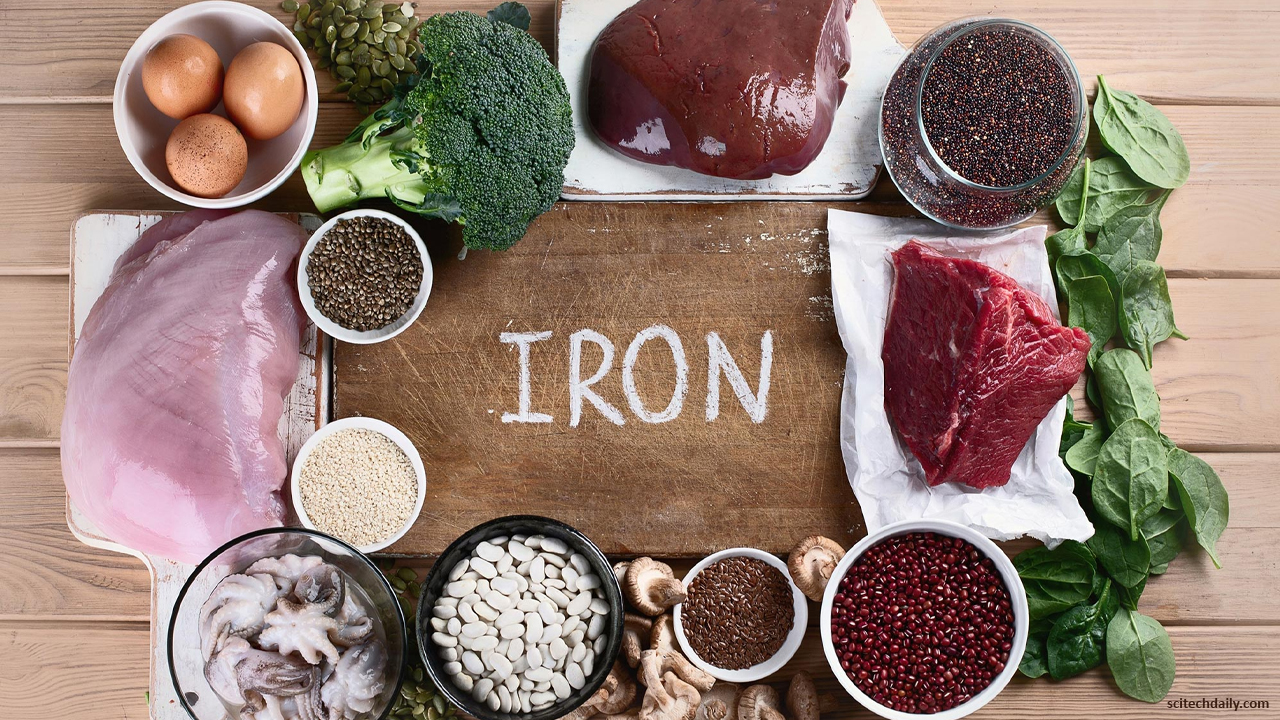Iron is a mineral that is naturally present in many foods, added to some food products, and available as a dietary supplement. Iron also known as [FE] is a mineral that helps maintain healthy blood flow. Its main purpose is to carry oxygen in the hemoglobin of red blood cells throughout the body so cells can produce energy.Iron is a mineral found in every cell in the body.
Two types of iron are found in the human diet which are Heme and non Heme. Heme iron comes from animal protein, while nonHeme iron comes from plants. Your body can absorb heme iron much more efficiently.Your body regularly gets iron from the foods you eat.For proper growth and development, infants and children need iron from their diets too
Contribution of iron in human body are
- Reduces tiredness and fatigue
- Helps in normal function of immune system
- Oxygen transportation throughout the body
- Creation of red blood cells and hemoglobin
- Maintaining healthy cell division
- Conversion of blood sugar to energy
- Physical and mental growth
People who do not get enough iron from food may choose to take an iron supplement, but be sure to keep supplements out of the reach of children because an overdose of iron can be fatal. .Too much iron can be toxic to the body. It can cause nausea, vomiting, constipation, or diarrhea.You should not get more than 45 mg of iron per day from food and supplements.The amount of iron needed in a day for men over 18 is 8.7mg ,whereas for women aged 19 to 50 is 14.8mg and last but not the least for women over age of 50 is 8.7mg.
Foods that can maximize iron intake
- Meat
- Fish
- Beans and lentils and other green leafy vegetables
- Vitamin - C rich foods
- Eggs
- Whole grain foods
Iron is essential for every kind of living organism, including plants, bacteria, animals and humans. A plant-based diet can be difficult to maintain, but it can be healthy and rewarding. It is more important to be aware of other foods that stop the body from absorbing iron like tea and coffee. Common causes of iron deficiency include not getting enough iron in your diet, chronic blood loss, pregnancy and vigorous exercise.Women are at risk of iron deficiency because of blood loss through menstruation, and also because they eat less meat and less food overall than men.

 -Iron is a workhorse nutrient. It makes your cells work properly, sharpens your concentration and boosts memory, gets your body energy supplies, helps form hemoglobin in your red blood cells that carries oxygen to every part of your body, and can even help to cure depression.
-Iron is a workhorse nutrient. It makes your cells work properly, sharpens your concentration and boosts memory, gets your body energy supplies, helps form hemoglobin in your red blood cells that carries oxygen to every part of your body, and can even help to cure depression.









.jpg)

.jpeg)







.jpeg)





.jpg)





